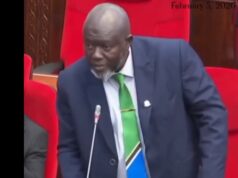- Lands CS Alice Wahome clarified that Kenyans must still pay for homes under the government’s affordable housing project despite contributing to the housing levy.
- The 1.5% salary deductions fund the construction of houses but do not count as pre-payments toward ownership.
- Homebuyers will enter a rent-to-own agreement with repayment periods of up to 30 years.
- Wahome insisted the scheme is not a direct sale but a structured ownership model.
- Calls for social protection housing for informal settlement residents were dismissed as impractical.
Lands and Housing Cabinet Secretary Alice Wahome has clarified that Kenyans contributing to the housing levy will still need to pay for homes under the affordable housing initiative.
The program, championed by President William Ruto, aims to address the country’s housing shortage while generating employment opportunities. Since 2023, salaried workers have been required to contribute 1.5% of their monthly earnings, with employers matching the amount. However, Wahome stressed that these deductions are meant for construction, not early payments toward home ownership.
Rent-to-Own Model Explained
Speaking during a simulcast on Nation FM and NTV, Wahome explained that the houses will be offered under a rent-to-own model. This arrangement allows occupants to gradually pay off their homes over a period of up to 30 years.
“This money helps us build the house, but you will still need to pay for it,” she stated. “The model we are using is like a tenant purchase scheme, not a direct sale.”
She added that homeowners could clear their payments sooner if they wished.
Criticism and Social Protection Debate
Critics questioned why the initiative was not structured as a social protection program for underprivileged Kenyans, particularly those in informal settlements who may struggle with rent-to-own schemes. Wahome dismissed the idea as unrealistic, arguing that it would be impossible to








